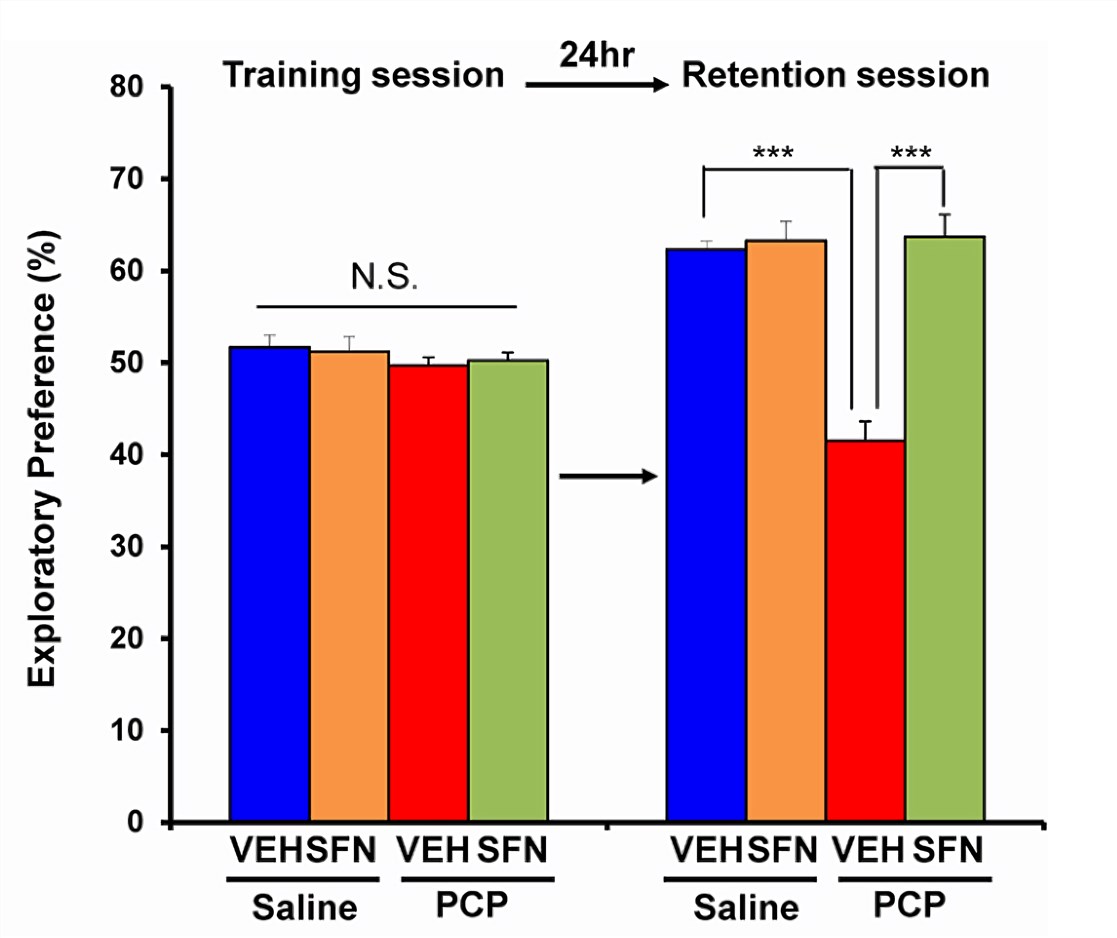Rodent Phencyclidine (PCP) Model of Schizophrenia
Schizophrenia is a complex multifactorial disorder characterized by positive and negative symptoms, the decline in cognitive performance, and neurophysiological deficits including impaired sensory gating. Creative Biolabs conducts contract studies in a most widely validated animal model of the positive, negative and cognitive symptoms of schizophrenia. This model is induced by administration of an open channel N-methyl-D-aspartate (NMDA) receptor blocker, phencyclidine (PCP).
Introduction of Phencyclidine (PCP) Model of Schizophrenia
Converging evidence supports the notion that dysfunction of the glutamatergic system is a primary pathophysiological change see in schizophrenia. Pharmacological evidence for the role of glutamate in schizophrenia centers on findings that blockade of the NMDA receptor by non-competitive antagonists, such as ketamine or PCP, produce a transient psychosis similar to that experienced by people with schizophrenia. In response to this discovery, NMDA antagonists such as PCP, ketamine, and dizocilpine have been used to create pharmacological animal models of schizophrenia in an attempt to better understand the role of glutamate hypofunction and to screen for new treatments.
A single administration of PCP (0.1-10 mg/kg) produces a wide assay of schizophrenia-relevant behaviors in rodents, such as hyperlocomotion, deficits in PPI and latent inhibition, social withdrawal, and impairment in performance on several animal cognition tasks, including set shifting, novel object recognition, spatial learning, and so on. Chronic administration of PCP produces more enduring social withdrawal and impairments in cognitive performance, but the duration of PPI deficits induced by acute and chronic PCP treatment seems to be comparable.
 Fig.1 Pretreatment with SFN significantly attenuated PCP-induced cognitive deficit in mice in a novel object recognition test (NORT). (Shirai et al. 2015)1, 2
Fig.1 Pretreatment with SFN significantly attenuated PCP-induced cognitive deficit in mice in a novel object recognition test (NORT). (Shirai et al. 2015)1, 2
Features of Phencyclidine (PCP) Model of Schizophrenia
- One of the key features of PCP model of schizophrenia is that they induce features that are similar to both negative and positive symptoms, as well as the cognitive deficits of schizophrenia.
- Acute and chronic PCP administration model a wider spectrum of the clinical features of schizophrenia compared to models used by amphetamine.
- NMDA antagonist-induced hypoglutamatergic models do not seem to be sensitive to drugs with no antipsychotic efficacy, and, therefore, they seem to have greater specificity for drugs with antipsychotic efficacy than the animal models that utilize pro-dopamine (e.g., amphetamine) drug administration.
Assessments
To evaluate the antipsychotic efficacy and neuroprotective effect of potential drugs, a number of behavioral tests can be conducted, including pre-pulse inhibition, locomotor activity, spatial working memory, social interaction, etc. Biochemical analysis and immunohistochemical staining of brain tissues are usually performed as well. Creative Biolabs conducts assessments including but not limited to:
- Pre-pulse inhibition (PPI)
- Behavioral tests of motor function
- Behavioral tests of cognitive function
- Social Behavior tests
- Biochemical analysis
- Histology & immunohistochemistry
You may also be interested in:
The neurological platform of Creative Biolabs provides an extensive range of rodent neurological disease models. If you are interested, click the following links for more detailed description of each model:
Creative Biolabs fully understands what is needed, how far it is needed, and how to help design the studies to obtain rapid and clear answers to our clients. Our highly translatable disease models and key technologies will help progress your novel agents into the clinic. If you're interested in our services, contact us to discuss your requirements.
References
- Shirai, Y.; et al. Dietary intake of sulforaphane-rich broccoli sprout extracts during iuvenile and adolescence can prevent phencyclidine-induced cognitive deficits at adulthood[J]. Plos One. 2015, 10(6): e0127244.
- under Open Access license CC BY 4.0, without modification.
For Research Use Only.
